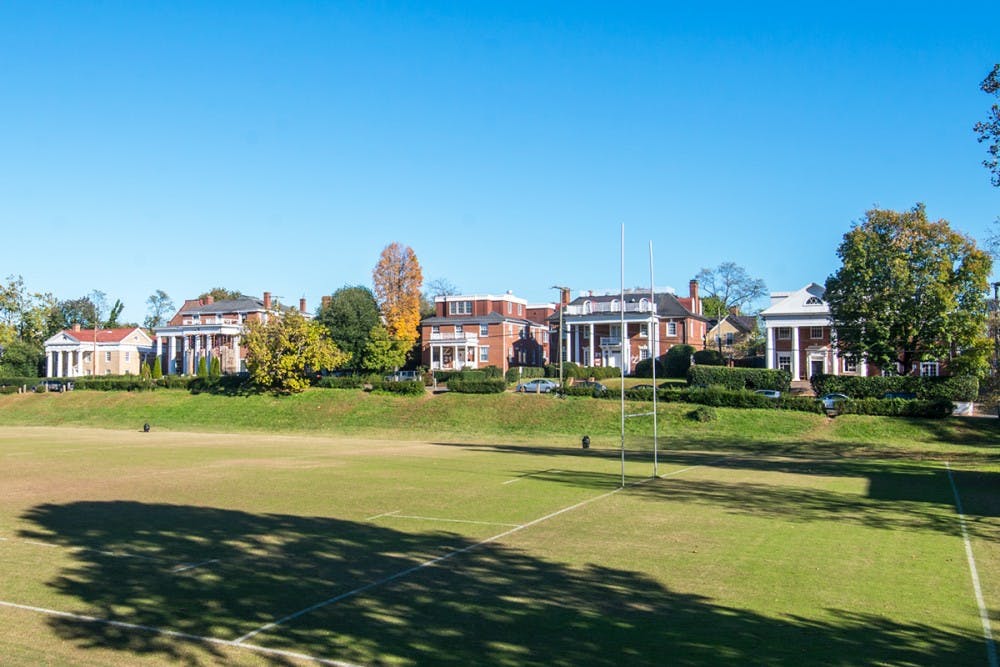Across the country, Greek life is coming under more and more scrutiny as opposition to problematic activities and the “Good Ol’ Boys” culture of fraternities grows. Over two dozen brothers of Beta Theta Pi at Penn State are awaiting or undergoing trial for the death of a pledge. Resistance to the University of Alabama’s infamous “Machine” has grown as the suspicious activity of the Greek collective has come to light. Even here at the University, tempers have flared over fraternal activities, such as last year’s “cops and robbers” incident at the Hall. Just this past weekend, there was controversy regarding the Devil’s Dancing party hosted by the Student Hip-Hop Organization and the IMPs at the Beta House. Across the country, this bad press has led to a decline in the amount of students that want to participate in Greek life. I am an active member of a fraternity, and I absolutely think that there are plenty of good things that Greek life offers and contributes to within the college experience. However, if fraternities want to maintain a presence at the University and remain relevant in college life, they must fundamentally change how they operate, become more safe and welcoming spaces and take their foundational principles seriously.
One of the largest complaints regarding fraternities is the general lack of safety in Greek spaces. Many minority students and female students simply don’t feel safe going to Greek events, and many avoid fraternities as a whole simply because they feel like they would be putting themselves at risk or wouldn’t be welcome should they trespass on that space. Unfortunately, these fears are completely valid. Fraternities have gained a reputation of being very dangerous for women and for being insensitive towards minority students. I am not a person of color, but I can imagine that it would be extremely uncomfortable to hear a bunch of drunk white boys yell the n-word whenever the SoundCloud rap song of the week is played at a party. Additionally, the precautions women are forced to make to stay safe around fraternities are unfair. Unfortunately, these precautions are out of necessity. There is no reason for entire groups of people to be made uncomfortable, unwelcome or unsafe in a social setting at this University, particularly a social setting that is seen as a focal point of nights out at the University.
Furthermore, something that turns many people away from Greek life in both a social and a participatory sense is perceptions about the culture itself. It comes across as an elitist institution that is demeaning towards women, overly aggressive and excessive in terms of drinking and drug use and borderline barbaric in its traditions and norms. The excessive nature and lack of a sense of responsibility evident in Greek life is among the reasons why so many people have qualms with the institution, and is also precisely why it attracts a certain population. Wealthy, white, heterosexual men tend to be given more leeway when it comes to breaking the rules, because “boys will be boys” and other patriarchal ideals run deep in our culture.
Fraternities need to adjust to the rapidly-changing culture on college campuses. They need to reckon with the fact that actions have consequences, and that people are fed up with allowing them to run rampant over the years. Security at parties needs to be stepped up. More sober brothers, restricting access, caps on alcohol and willingness to remove belligerents need to become the norm. Furthermore, when an assault accusation is made against a brother, that accusation needs to be taken more seriously. Valid accusations deserve to be believed, and fraternities should not protect brothers who commit assault from the consequences of those actions. Recruitment of more diverse brothers to represent different races, backgrounds and socioeconomic classes would make fraternities more representative of the University as a whole and feel more welcoming. The social and cultural norms of Greek life need to change in order for more minority representation to be possible. Anything that can be done to make Greek spaces more welcoming and less hostile to potential brothers in minority groups should be done. Fraternities need to show that they are not just bastions of elitism, but are willing and able to welcome minority brothers, respect them and their identities and defend their minority brothers from prejudice internally and externally.
As an extension of this notion, fraternities need to remember the purpose they are meant to serve. I am a member of Pi Lambda Phi. Our foundational principle is the elimination of prejudice. A brother of PiLam is supposed to be willing to lay down his life fighting for equality and freedom. We were the first member of the Inter-Fraternity Council to desegregate, when brother David Temple was initiated in 1969. The beliefs and values of my fraternity are why I joined in the first place, and as a gay man knowing those values were at the core of what it means to be a PiLam is why I felt comfortable pledging at all. At the core of Greek life, there are messages of service, brotherhood, respect and honor. These are values that seem to have fallen by the wayside. Fraternities need to remember that their brotherhoods are meant to serve a more noble purpose than functioning as a mechanism for blacking out three days a week. A return to focus on service and values as well as actively working to become both safer and more welcoming for all people will ensure the survival of Greek life on college campuses.
Chris Hopkins is a Viewpoint Writer for The Cavalier Daily. He can be reached at opinion@cavalier.com.







